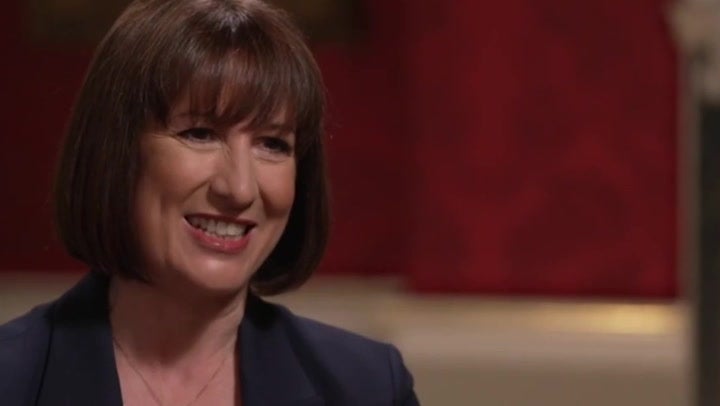Support truly
independent journalism
Our mission is to deliver unbiased, fact-based reporting that holds power to account and exposes the truth.
Whether $5 or $50, every contribution counts.
Support us to deliver journalism without an agenda.

Labour has resisted calls to scrap the two-child benefit cap as they defeated an amendment to legislation scrap the controversial measure.
Rachel Reeves has said she will not make the pledge to lift the cap “without being able to say where the money was going to come from”. The chancellor argues it would cost £3bn to scrap the policy, which would exceed government funding targets.
Labour faced an early rebellion on the issue, as seven Labour MPs voted agains the government to back scrapping the cap. A further 42 abstained from voting. While Sir Keir Starmer was still able to easily win the vote given his massive majority, the episode will be seen as damaging to the party.
For the latest political updates, follow The Independent’s live coverage
The prime minister has now suspended John McDonnell, Zarah Sultana and the five other Labour MPs from the party. Ms Sultana has been outspoken about the issue, writing on Twitter / X before the debate: “When people say there’s no money to scrap the two-child benefit cap, they’re not looking in the right places.”
Here’s everything you need to know about the controversial DWP policy:
What is the two-child benefit cap?
The two-child benefit cap prevents parents from claiming universal credit or tax credit for their third child. It was introduced by the Conservatives and came into place in April 2017. It only affects applies to children who were born after 6 April 2017.
The measure was introduced by then chancellor George Osbourne, alongside a raft of other changes to the benefits system. The Conservatives said the measures were designed to encourage benefit recipients “to make the same choices as those supporting themselves solely through work.”
Latest official figures show that 1.6 million children are living in families affected by the policy. Campaigners, charities and politicians from across the spectrum have called on the new government to scrap the measure.

In response to the latest figures, work and pensions secretary Liz Kendall described child poverty as a “stain on our society” and that “too many children are growing up in poverty”
She said: “We will work to give every child the best start in life by delivering our manifesto commitment to implement an ambitious strategy to reduce child poverty.”
The government have subsequently launched a taskforce to combat child poverty, alongside announcing the Children’s Wellbeing Bill that was announced in the King’s Speech.
This piece of legislation introduces free breakfast clubs for all primary school children, strengthens child protection arrangements, and enforces limits on the number of branded items of uniforms schools can require.
But many campaigners were disappointed to not see the two-child benefit cap announced in the speech. Responding to the speech, the Child Poverty Action Group said: “The new Government pledged an ambitious approach to tackling child poverty but there was little to help achieve that aim in the speech today.”
“The two-child limit is the biggest driver of rising child poverty… delaying its abolition will harm many more young lives and undercut the government’s poverty-reduction plans.”
Earlier analysis from the campaign groups shows that lifting the cap would help one million children move away from poverty, bringing 300,000 out entirely, and another 700,000 out of deep poverty. Their findings also show that 93% of impacted parents say the policy makes them less able to afford food.
Labour are still resisting all calls to scrap the controversial policy, citing their economic responsibilities. Some campaigners hope the new government will use their first Budget to announce an end to the measure. However, the party committed to strict fiscal rules and low revenue raising measures in their election manifesto, and so far seem intent to stick to those pledges.


